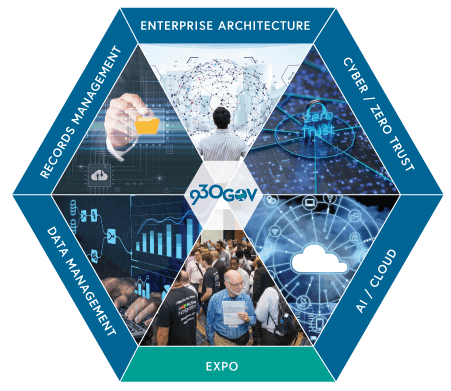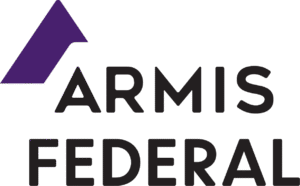ONLINE REGISTRATION IS CLOSED – ONSITE REGISTRATION OPENS AT 7:00AM 7/31
5 SOLUTION TRACKS
Theme: Mission-Enabled Modern Technology Forum
Records Management @ 930gov
Digital Government Institute’s Records Management @930gov Conference is the premiere event for government records management and information management professionals to learn and share industry best practices. Key government and industry experts will gather to discuss available solutions, policy updates/changes and review examples of successful electronic records programs.
Conference content is developed with input and guidance from the DGI eDiscovery, FOIA and Records Management Educational Advisory Committee with the goal of bringing industry thought-leaders, solution providers, and practitioners together to deliver a thought-provoking, interactive, solution-oriented program.
Learning objectives include:
- Sharing the most interesting trends on the horizon for government records management community
- What lies ahead after achieving directives outlined in M-19-21 and M-23-07
- Review of best practices and modern technologies impacting eDiscovery, FOIA and RM
- Artificial Intelligence’s current and future impact on RM
- Covering the latest developments with Zero Click Records Management
- Practical ways to implement ERM with reduced budget and staff
- An update on Cloud-to-Cloud transfer of digital records
AGENDA
7:00am
Registration Opens

Records Management Track Emcee
Philip C. Droege
Director, Office of Records Management, The White House
8:15am
Panel: Data, Documents & Disruption: Bridging Tradition and Technology for the Next Phase of RM

Melissa Carson
General Manager, Iron Mountain Government Solutions

Richard Huffine
Assistant Director, Enterprise Information & Records Management, FDIC
9:00am
Experience QAI’s End-to-End Digital Journey
Step into the future of information governance. Visit our expanded exhibit space to explore a fully integrated digital journey, powered by industry-leading technologies from our top partners. Discover how QAI helps federal agencies meet NARA (36 CFR Part 1236, Subpart E) compliance requirements through a scalable, cost-effective solution. Our unified platform delivers seamless content management, document imaging, and digitization solutions—streamlining your path to compliance. We’re the only provider offering a true end-to-end solution for federal information governance. Come see it in action—and leave saying, “Now I get it.”

Scott Swidersky
Vice President, IIM, Quality Associates, Inc.
9:30am
Visit Exhibit Hall - Networking Break
10:30am
Charting the Future of Information Management: A Blueprint for Agencies

Dan Feith
President, Feith Systems
11:15am
GenAI . . . So, Where’s the Data?
Agencies now demand in-house implementations of GenAI which need massive data feeds for training and insights, especially of “unstructured” data such as emails and files. This poses serious challenges because: (a) it is difficult and expensive to store, access, search and cull massive datasets of emails and files scattered across the enterprise, and (b) the unstructured data must also be governed for e-discovery, compliance, records and privacy. In addition, GenAI training is now trying to scale with “SLM” and “RAG” approaches.
This session outlines how to achieve both information governance and GenAI data feeds, while also slashing storage costs and legal liabilities.

Kon Leong
CEO, ZL Technologies
12:00pm
Visit Exhibit Hall - Networking Lunch Break
1:15pm
Anchoring Federal Records: Moving Forward into FY 2026

William Fischer
Acting Chief Records Officer, NARA
1:45pm
Panel: Doing More with Less: How AI is Reshaping Federal Government Investigations and Litigation
Federal government agencies are facing heightened pressure to achieve more with fewer resources. From public records requests to investigations to eDiscovery and litigation, the need to maximize efficiency without compromising outcomes has never been more critical. In this webinar, we explore how artificial intelligence (AI) is driving transformative change within federal legal departments, enabling agencies to work smarter, not harder.
Discover how AI-powered solutions are helping agencies streamline operations, accelerate investigations, and improve case management—all while reducing costs. Through real-world case studies and expert insights, you’ll gain a deeper understanding of how AI is reshaping the landscape of government investigations and legal work.

Carey Bandler
Vice President of Sales, Nuix US Government

Ray Cook
Director of Federal Law Enforcement, SMX and former Deputy Assistant Director of the Laboratory Division, FBI
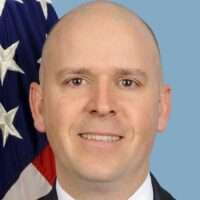
Paul Haag
Director of Partnerships and Capture, Contract Government Services and former Unit Chief, Strategic Vehicle Technologies Unit, FBI

Karenna Soto
Federal Sales Manager, Veritone, Inc.
2:15pm
Staying on the Right Side of Record Retention Laws

Elizabeth Hempowicz
Deputy Executive Director, American Oversight
3:00pm
13th Annual 930gov Networking Reception
EA @ 930gov
Theme: Essential Support for Mission Enablement
The purpose of enterprise architecture (EA) is to determine how an agency can most effectively achieve the current and future mission of the agency. EA helps in laying out a clear framework of an agency’s structure, personnel, technology, and planning to get the most out of government services.
Government agencies are being directed to streamline operations with the goal of delivering public services in a more secure, effective, and efficient way. To accomplish this, it is vital for the government architecture community and innovation leaders to build data-driven agencies focused on business priorities and mission objectives. The annual EA @930gov Conference will focus on how EA is being deployed to solve some of the most pressing public sector challenges.
Learning objectives include:
- Utilizing Enterprise Architecture principles to unleash agency innovation
- How agencies can use EA to:
- roadmap Zero Trust implementation
- onboard Artificial Intelligence & Machine Learning capabilities to achieve mission
- move away from a process-orientation to a results driven mindset/ culture to keep up with the speed of change
- align workforce capabilities to business needs
- EA Guidance to take charge (time for EA to elevate its game)
- How to maintain an effective EA team (examples from Public and Private sectors)
AGENDA
7:00am
Registration Opens

Enterprise Architecture Track Emcee
Dr. Cort Coghill, CEA, PMP
Director of Education, FEAC Institute
8:30am
OneGov in Motion: Driving Value Through Governmentwide Solutions
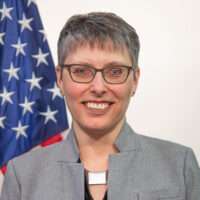
Laura Stanton
Deputy Commissioner, Federal Acquisition Service, GSA
9:15am
What Can Star Wars™ Teach Us About EA?
In a galaxy not so far away, Enterprise Architects are battling complexity, silos, and outdated systems—struggling to bring order to the chaos of digital transformation. What if the key to mastering your Enterprise Architecture (EA) challenges lie within the wisdom of the Jedi… or the Empire? Join Nelson de la Cruz, Senior Solutions Architect at ARIS, for a session that explores what Star Wars™ can teach us about modern EA. You’ll discover how to:
- “Unlearn” the past and adopt new (or revived) approaches to Business Architecture
- Strengthen governance with robust risk and compliance
- Bring balance to business and IT by aligning your transformations.
Whether you’re a Jedi Master of architecture or a Padawan just beginning your journey, you’ll leave inspired with new ways to apply the Force to future-proof your organization’s EA strategy.

Nelson de la Cruz
Senior Solutions Architect, ARIS USA, Inc.
9:45am
Visit Exhibit Hall - Networking Break
11:00am
TBM and Enterprise Architecture: Bridging the Business-Technology Divide

Kathryn McAteer, PMP, PMI-ACP, DFMCP3
Chief, Strategic Business Transformation and Optimization, U.S. Army
11:30am
Practical Use of Generative AI in EA Practice

Dr. Cort Coghill, CEA, PMP
Director of Education, FEAC Institute
12:15pm
Visit Exhibit Hall - Networking Lunch Break
1:15pm
Overview of IT Financial Management Frameworks Including Technology Business Management, FinOps, and Custom Frameworks
An overview of various frameworks will be discussed along with implementation lessons learned, industry trends, and integration with Enterprise Architecture.

Ryan Woodward
VP, Business Transformation, TISTA Science and Technology Corporation and former COO, OIT Infrastructure Operations, Department of Veterans Affairs
1:45pm
Transition Process to Quantum – How Quantum will Impact Agency AI/Cloud Efforts

Florence Lewine
Former Senior Policy Advisor Quantum, Cyber Risk and Cryptography, DHS
2:15pm
Architecting Resilient Systems for Post-Quantum and AI-Era Threats!

Dr. Rosana R. Stoica
AOUSC
3:00pm
13th Annual 930gov Networking Reception
AI / Cloud @930gov
For government agencies to evolve and deliver exceptional service to citizens, technologies like Artificial Intelligence (AI) and other cloud-based solutions must be widely implemented and adopted. Combining the potential capabilities of both AI and the Cloud can deliver greater efficiency, productivity, and digital security required by government agencies moving forward.
The rapid advancement in both technologies lead us to believe cloud computing and artificial intelligence are increasingly merging. Using a cloud infrastructure with AI tools allows agencies to process and analyze data in real time, providing service capabilities on par with industry leading vendors.
The Artificial Intelligence/Cloud Computing @930gov conference will explore the recent developments of each capability and how the use of these technologies can benefit the public sector.
Learning objectives include:
- How AI can help government make smarter, faster decisions
- How government agencies can leverage the cloud to achieve cost savings, improve efficiency and meet federal mandates
- How AI, ML and cloud computing are assisting agency mission
- Examples of customer service improvements with use of AI
- Benefits of automated remediation and investigation
- Implementation hurdles to expect
- How to create a smart, connected, secure government
- Examples of industry best practices & lessons learned using AI/Cloud
AGENDA
7:00am
Registration Opens

AI / Cloud Track Emcee
Christina Ayiotis, Esq., CRM, CIPP/E, AIGP
Assistant General Counsel, Cyber Security, Privacy, Records, & AI, Lumen Technologies
8:30am
Deploying AI Systems Securely

Dr. Linda C. Jantzen, COL, USA, Ret.
Professor, College of Information and Cyberspace, National Defense University
9:15am
Reenvisioning Data: Our Perspective on the AI Journey

Mark D’Alessandro
Chief Technology Officer, Four Points Technology
9:45am
Visit Exhibit Hall - Networking Break
10:45am
GSA AI Tool
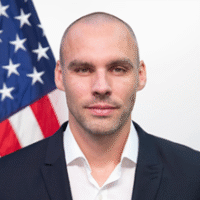
Zach Whitman
Chief Data Scientist and Chief Artificial Intelligence Officer, GSA
11:15am
AI and Agents in Government: Transforming the Total Experience

Wole Moses
Chief AI Officer, Microsoft Federal Civilian
12:00pm
Visit Exhibit Hall - Networking Lunch
1:15pm
Securing the Future of AI: Threats, Mitigations, and Beyond

Apostol Vassilev, PhD
Research Supervisor, Computer Security Division, National Institute of Standards and Technology (NIST)
2:00pm
AI in Government: What's Working and What is Next

Jaime Fitzgibbon
Founder, Ren.ai.ssance Insights
2:30pm
Panel: AI-Driven Modernization

Ron Bewtra (moderator)
Former DOJ CTO, NOAA CTO, and Hewlett Packard Enterprise HPC Strategist
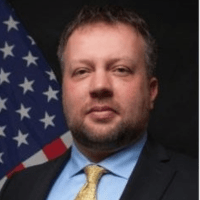
Dr. Darren Death
Chief Information Security Officer, Chief Privacy Officer, Deputy Chief AI Officer, Export-Import Bank of the United States

Jaime Fitzgibbon
Program Manager Artificial Intelligence and Machine Learning (AI/ML) Portfolio, Defense Innovation Unit and Founder, Ren.ai.ssance Insights

Nick Weber
Acting Director, Office of Scientific Computing Services, Center for Information Technology, National Institutes of Health
3:15pm
13th Annual 930gov Networking Reception
AI / CLOUD TRACK SPONSORS
Data Management @ 930gov
Data Management @930gov will delve into the strategies, technologies, and policies essential for managing public sector data efficiently and effectively. Attendees will gain insights into best practices for ensuring data integrity, security, and privacy while complying with regulatory requirements in a rapidly changing agency and technology landscape.
This conference offers a unique opportunity for public sector data professionals to network in-person, hear what is new, and learn from their government and industry peers. Conference attendees will learn about the challenges and opportunities in inter-agency data sharing and collaboration. Case studies and expert panels will highlight successful implementations of data management initiatives that have led to improved public services and policymaking. The program is designed for government officials, data managers, IT professionals, and policy makers who are looking to leverage data as a strategic asset to drive innovation, efficiency, and accountability in the public sector.
Learning objectives include:
- Developing a comprehensive Data Governance Framework
- Reviewing tools and resources required to use data in a critical decision-making process
- The use of Artificial Intelligence for more informed decision-making
- How to build a data culture across the organization to deliver results
- How to collect & move data in a simple, secure, scalable, and cost-effective way
- How to future-proof cloud and data migrations
AGENDA
7:00am
Registration Opens
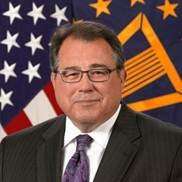
Data Management Track Emcee
Mark Krzysko
Former Principal Deputy Director, Acquisition Policy, and Analytics; Enterprise Data, Department of Defense
8:30am
Building a Data-Driven Future: Implementing Data Strategies & Governance in the Age of AI

Rob King
Three-time Federal CDO and Vice Chair CDO Council
9:15am
Bridge Legacy and Modern Systems to Power Public Sector Innovation
As government agencies work to harness data as a strategic asset, they face growing pressure to balance security, compliance, and performance with the need for innovation. Across federal, state, and local governments, agencies depend on reliable systems like the mainframe to manage mission-critical operations—from processing benefits and managing personnel records to maintaining public safety databases and tax systems. These systems house invaluable data, but accessing that data—quickly, securely, and without disruption—remains a major challenge.
From supporting mission-critical operations to powering public-facing applications and enabling cross-agency collaboration, success depends on making data accessible—without disrupting the reliable systems agencies trust. In this session, we’ll explore how agencies are using CONNX to modernize their data strategy—enabling real-time, secure access to a wide range of legacy and modern sources, including VSAM, DB2, ISM, Adabas, Datacom, OpenVMS, Oracle, SQL Server, cloud based data sources, and more. Whether advancing AI initiatives, driving smarter policymaking, or improving digital services, CONNX empowers agencies to connect siloed data—without costly rip-and-replace efforts—across diverse platforms and environments.
You will gain insights into how you can:
- Build a secure, scalable foundation for data governance and modernization
- Enable data-driven decision making and cross-agency collaboration without data duplication
- Support real-time analytics and AI readiness across hybrid environments
- Simplify cloud and data migrations while preserving reliable legacy investments
- Deliver better public services by bridging backend systems with digital platforms—quickly and securely
Whether you’re working to modernize citizen services, improve decision-making with real-time insights, or meet cross-agency data sharing mandates—CONNX helps you do it efficiently and securely. Join us to see how government agencies are transforming data into an operational asset—with no disruption to mission-critical systems.

Robert Jeffcott
Principal Systems Engineer, Software AG
9:45am
Visit Exhibit Hall - Networking Break
10:45am
Reenvisioning Data: Our Perspective on the AI Journey

Mark D’Alessandro
Chief Technology Officer, Four Points Technology
11:15am
Network Disruption with Flank Speed Wireless: Transmitting and Receiving Volumes of Data in an Afloat Environment
The connectivity sailors had available during the Lincoln’s sea tour was the biggest demonstration to date of a Navy project called Sailor Edge Afloat and Ashore, which aims to bring shore-grade communications to underway ships, and the related Flank Speed Edge, the Navy initiative to extend its cloud computing offerings to places where bandwidth is a major challenge. Using proliferated low-earth orbit satellites and 5G cellular networks, the Lincoln was able to transmit and receive volumes of data that previously would have been unthinkable in an afloat environment: about eight terabytes per day.
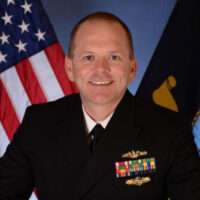
CAPT Kevin A. White
Program Manager, Undersea Communications and Integration Program Office, U.S. Navy
12:00pm
Visit Exhibit Hall - Networking Lunch
1:30pm
Panel: STARTing Strong: Establishing Best Practices for Scaling a Knowledge Management System for a Federal Agency

Dr. Ajay Vatave, MD, MPH
Assistant Director for Tools and Analytics, Office of Evaluation, Performance, and Reporting, Division of Program Coordination, Planning, and Strategic Initiatives, Office of the Director, National Institutes of Health (NIH)

Eileen Oni, PhD
Chief Data Officer, Office of Evaluation, Performance, and Reporting, Division of Program Coordination, Planning, and Strategic Initiatives, Office of the Director, NIH

Comfort Kai, MPH
Scientific Program Analyst, Office of Evaluation, Performance, and Reporting, Division of Program Coordination, Planning, and Strategic Initiatives, Office of the Director, NIH
2:15pm
Panel: Opportunities & Challenges in Government Data Management - Navigating the Future

Darren Ash
former Federal CIO (moderator)

Paul Adamson
Senior Program Manager for Data Science and Information Technology, National Nuclear Security Administration

Rebecca Albin
Sr. Director, Systems Engineering, Software AG

Susan Gregurick
Associate Director for Data Science, Office of Data Science Strategy, Division of Program Coordination, Planning, and Strategic Initiatives, National Institutes of Health (NIH)

David Henderson
Chief Data Officer, Y-12 National Security Complex, Department of Energy
3:00pm
13th Annual 930gov Networking Reception
DATA MANAGEMENT TRACK SPONSORS

Cyber / Zero Trust @930gov
Theme: Intersection of Cyber, AI and Privacy
The 2025 annual Cyber / Zero Trust @930gov conference program is designed to convene government officials, industry leaders, and academic experts to explore the critical nexus of cybersecurity, artificial intelligence, and privacy. This conference will address the latest advancements and challenges in these interconnected fields, focusing on how AI technologies can enhance cybersecurity measures, the privacy implications of AI-driven solutions, and the regulatory framework needed to protect sensitive data. Attendees will gain insights into the evolving landscape of cyber threats, lessons learned from Zero Trust implementations, updates on Continuous Monitoring best practices and related strategies for ensuring robust cybersecurity protections in an increasingly digital world.
Throughout the program, participants will engage in keynote speeches, panel discussions, and interactive workshops led by thought leaders and practitioners. The conference aims to foster collaboration, knowledge sharing, and thought leadership by equipping attendees with the tools and strategies needed to navigate the complexities of the digital age while maintaining lofty standards of cybersecurity and privacy.
Learning objectives include:
- How to create a comprehensive cybersecurity posture to ensure long-term security of agency systems
- Examples of ZT transformation, including effective communication, changing culture, available tools, adjusting processes and training personnel
- Review of privacy issues associated with the rapidly changing cyber landscape in the age of AI
- Review of AI-generated phishing and related tactics used to deceive end users
AGENDA
7:00am
Registration Opens

Cyber /Zero Trust Track Emcee
Tom Temin
Principal, Thomas R Temin Associates
8:45am
Beyond Compliance: How CMMC is Strengthening Government Cybersecurity

9:30am
Visit Exhibit Hall - Networking Break
10:30am
Adapting the NIST Cybersecurity Framework for AI

Katerina Megas
Program Manager, Cybersecurity for Internet of Things, NIST
11:00am
The Evolution of AI in Cybersecurity: Enhancing Threat Detection and Data Privacy

Carley Salmon
Senior Data Security Solution Engineer
Microsoft Federal
11:30am
Taking the Reins of CDM 2.0
CISA is doubling down on the modernization of the CDM program. This new approach replaces legacy designs with cloud services that look to fulfill the original goals while providing agencies with more flexibility and value, positioning CDM as a critical component in securing the civilian federal cyberspace. Agencies need to take an active role in shepherding this effort. Learn what your agency can do to take the outdated CDM buggy and transform it into the powerful engine of a modern cyber-response program.

Matthew Shallbetter
Director of Civilian Strategy, Armis Federal
12:00pm
Visit Exhibit Hall - Networking Lunch
1:15pm
FedRAMP 20x

Peter Waterman
Director, FedRAMP, U.S. General Services Administration
2:00pm
Panel: Shaping the Future of Public Sector Cybersecurity: Managing Risk, Driving Innovation & Ensuring Compliance

Donald Coulter
Cyber Security Science Advisor, Science & Technology Directorate, DHS

Kevin Allen Dorsey
InfoSec & Privacy Lead, Enterprise Architect, Centers for Medicare & Medicaid Services

Manuel Medrano
Director, Cyber Monitoring and Operations, Directorate of Cyber Technology and Security, Bureau of Diplomatic Security, U.S. Department of State

Monica Montgomery
CISO, ODNI

Victoria Yan Pillitteri
Manager, Security Engineering and Risk Management Group, NIST
3:00pm
13th Annual 930gov Networking Reception
Cyber / Zero Trust Track Sponsors
Digital Government Institute
1934 Old Gallows Road, Suite 350
Vienna, VA 22182
703-752-6243
NAVIGATION
© 2025 Digital Government Institute | Privacy Policy


